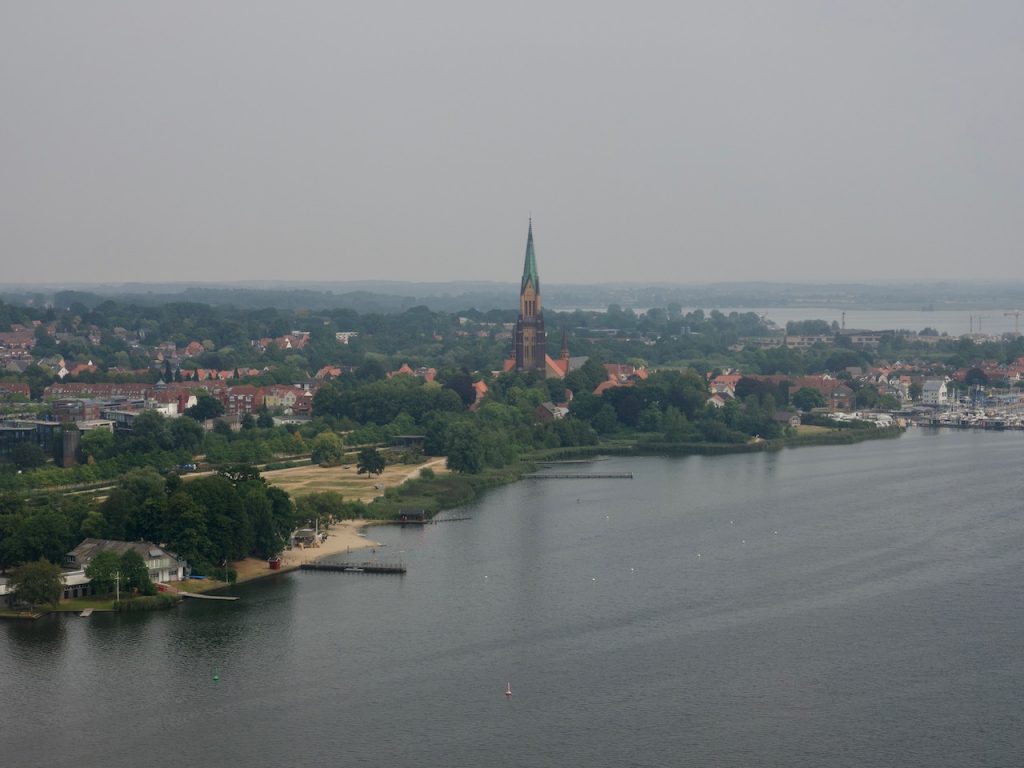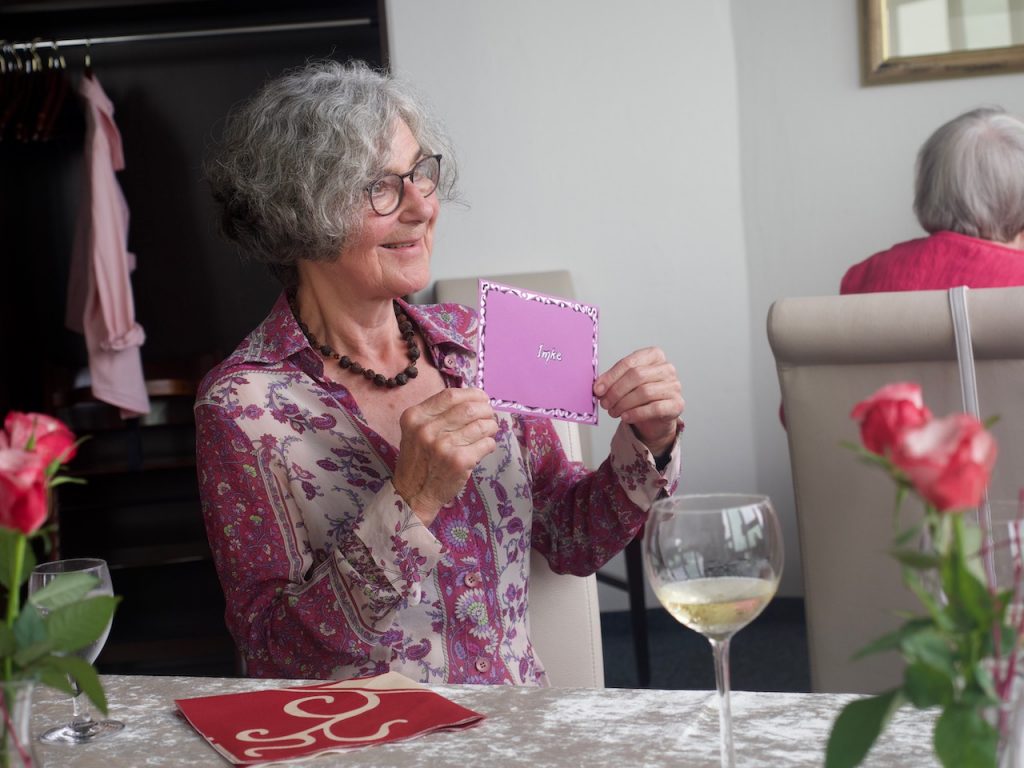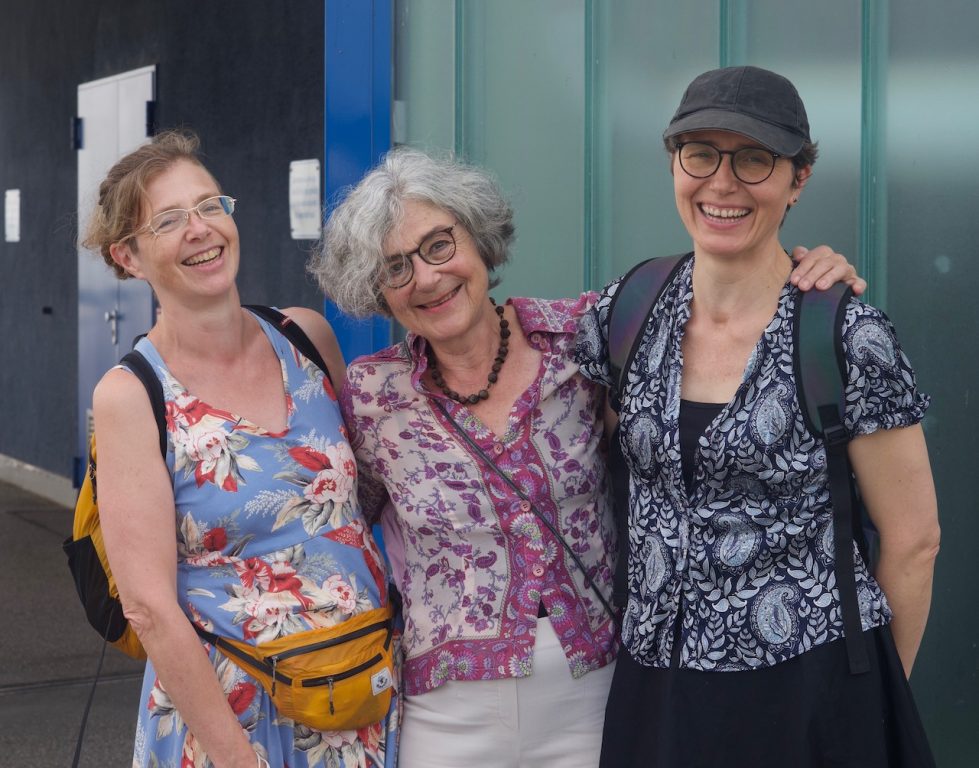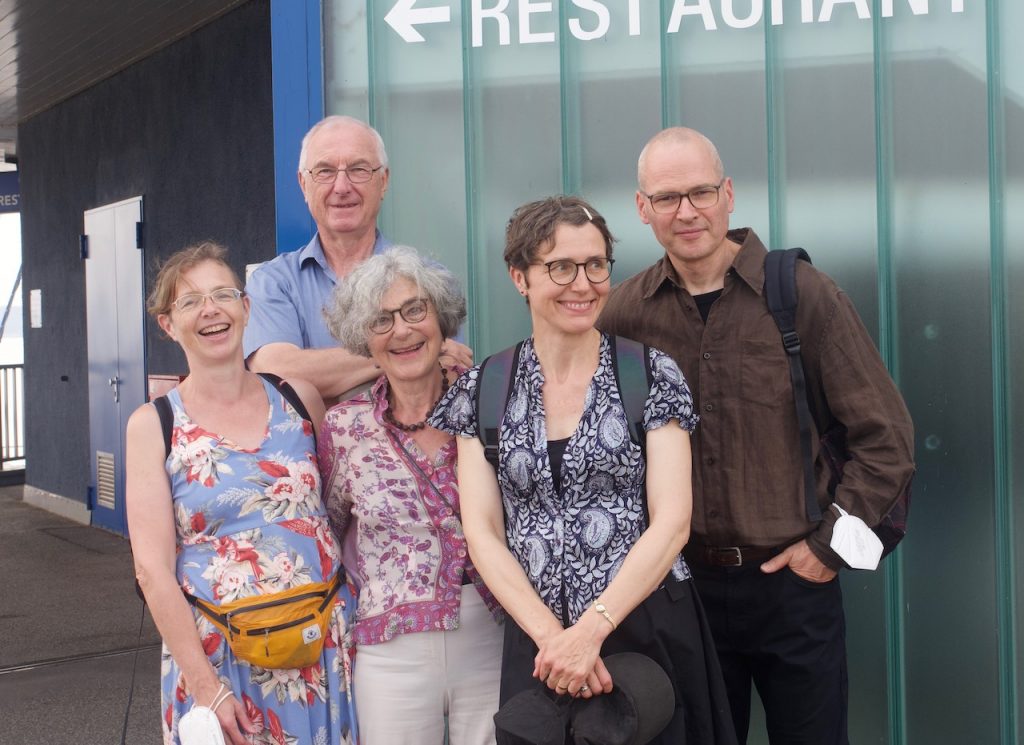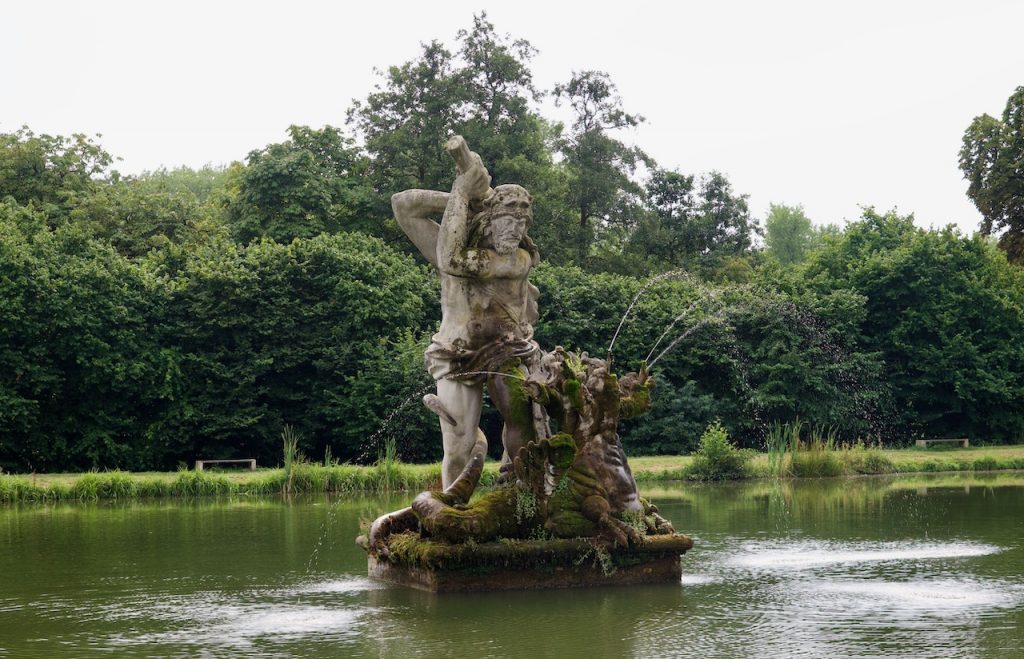Wednesday, August 17
Yesterday was the Big Day—my mom’s 80th birthday. Mark and I took off from Hamburg shortly before 9 am and took the train to Schleswig (about an hour and a half from Hamburg, which gave me enough time to finish a card for my mom, to the general admiration of our German seat mates, who told us about their various trips to the US). In Schleswig, straight north from Hamburg, we were going to meet my mom and her significant other Klaus and my sister Judith and her husband Michael. It turned out just before we got to our destination shortly after 11 that Judith and Michael were actually on the same train as we were! We caught up with each other when we got off the station and after fulsome hugs and and hellos (we hadn’t seen each other in over a year) we made our way to the Wikingturm. The latter is an ugly architectural oddity that is locally famous but also contested: an octagonal 26-story apartment building that was built in the 70s, apparently with the builders dodging various rules about building heights, since it is higher than the local cathedral and just a sore thumb in an otherwise mostly “ground level” city. It was very fancy in the 70s, then fell into disrepair, and has now been gentrified. And that means that it has a restaurant at the top, where a penthouse would normally be, and the view FROM it is fantastic–especially from the restrooms, actually, since you see the entire town, including a gorgeous 18th century “castle” or large manor house with its gardens, and the Schlei, an fjord-like inlet that takes a paragraph of geological explanation if anyone really needed to know, but really just looks like a lake when it reaches Schleswig.
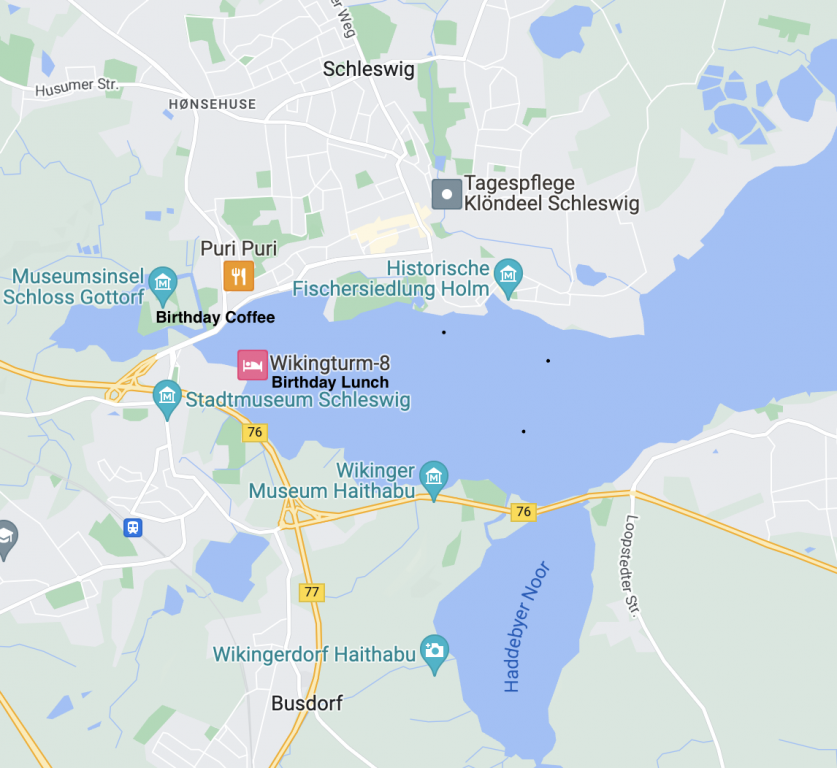

My mom had been planning for this birthday dinner for months, and I was so happy for her that everything was perfect. It didn’t even rain, but was beautiful–sunny but not too hot (I told her that this was simply because she bought herself a fancy new raincoat before she left). She and Klaus are spending a four-day vacation here, in a cute downtown hotel, to explore Schleswig and we just joined them for lunch. We had a lovely dinner (Mark had Schnitzel, I had a fish platter, and the others had various meat and fish dishes, with fabulous German pan-fried potatoes). The ambiance of the restaurant is still very 1970s (especially the ceiling) but the view and the company were awesome. We toasted my mom with white wine and water, gave her the card I crafted on the way (she already had “unwrapped” our present, of course—the chargeable light-weight vacuum cleaner), and had a very good time!
Then we walked to the aforementioned castle, Schloss Gottorf (less than a mile away), which Mark and I visited in 2018 when we were all vacationing in nearby Eckernförde. So this time we just wandered around the gardens and then had coffee and cake (because birthday!) from a lovely little museum cafe at a picnic bench.
By the time we were done, it was already 4 pm, so Michael, Judith, Mark, and I sorted out how to walk back to the train station, which turned out to be a lovely wooded walkway that avoided the traffic routes, and got us there just in time for our train to Neumünster (about 45 minutes south, towards Hamburg). Judith and Michael’s car was waiting for us there. They very recently moved from one very small town to another (already all unpacked, wow!), and the little country roads we took to get there were not only unfamiliar to us but also new to them. We said hello to their aged cat, Bert, who is currently only allowed outside on a leash because there is a notorious bully of a tomcat downstairs. He was very mellow about it, though. They showed us around their new place, which at the edge of what is really just a village and similar in how rural it is. The house is a remodeled farm house that is now divided into four apartments; theirs is the only one that is upstairs, looking down on a beautiful garden with fruit trees that they will be allowed to help harvest. But it is larger than their old place, with much more storage, a large balcony/“Dachterasse” and a very fancy kitchen.
We hung out on the balcony to chat and cool off, and later had a small buffet-style bread and cheese dinner; we also took a little walk along the nearby fields. The grain here has already been harvested, so in some spots we could see quite far across the rolling countryside. We also saw two deer bouncing across one of the fields, since it was already nearly dusk; a storm was moving our way but the (very welcome) downpour didn’t come until we were back home. It sounded so nice on the roof! And it was wonderful to talk to my sister and Michael for an evening. I’ll get to spend some more time this weekend, but Mark is leaving in just a couple of days, and I am glad he got to see their new place and chat at least for a little while.
